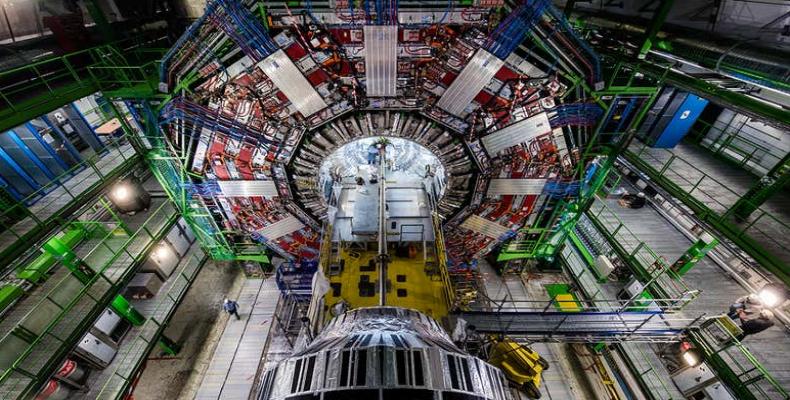The 2010s saw huge leaps in physics, genetics, archaeology and technology. Here is New Scientist's pick of the best
1. Higgs boson
It took four years, thousands of people and the world’s biggest machine, but, in 2012, particle physicists at CERN announced the discovery of the Higgs boson. The particle helps explain why all other particles in the universe have mass, and its discovery completed the standard model of particle physics.
2. CRISPR
The full potential of genetic engineering was unlocked in 2012 with the cheap and easy CRISPR system for editing DNA. Its use has since exploded, unfortunately including the widely condemned creation of the first gene-edited babies in China in 2018.
3. Gravitational waves
In 1916, Albert Einstein predicted that space-time – the fabric of the universe – was disturbed by strange ripples known as gravitational waves. Exactly a century later, the Laser Interferometer Gravitational-Wave Observatory collaboration announced that it had finally spotted these waves emanating from a pair of merging black holes.
4. AlphaGo
The decade has been dominated by advances in artificial intelligence, but the pinnacle of machine achievement was AlphaGo. The software developed by DeepMind beat leading player Lee Sedol at the board game Go in a stunning 4-1 match in 2016.
5. Layla’s gene therapy
In 2015, a 1-year-old girl received a cancer treatment unlike any other. Doctors at Great Ormond Street Hospital in London gave baby Layla immune cells from a donor that they had genetically modified to destroy the cells causing her leukaemia, saving her life.
6. Denisovans
Researchers announced the discovery of a human finger bone that is genetically distinct both from modern humans and Neanderthals in 2010, complicating our ancestral story. They named this new species the Denisovans, after Denisova cave in Siberia, Russia, where the bone was found. Later discoveries in the cave included more remains of these mysterious people, including the 2018 announcement of a hybrid with a Neanderthal mother and a Denisovan father. Genetic analyses have also revealed that there are people today carrying some Denisovan DNA.
7. Quantum supremacy
Efforts to develop quantum computers gradually ramped up this decade, culminating with Google’s announcement of quantum supremacy in 2019. The firm developed the first quantum computer capable of performing a calculation that no classical supercomputer on Earth can match.
8. Proxima Centauri b
When the decade began, we knew of about 450 planets beyond our solar system. Now, that number has bloomed to more than 4000. Most significant of all was the discovery of Proxima Centauri b in 2016, the closest known exoplanet, at a distance of 4.2 light years from Earth.
9. Face transplants
The first full transplant took place in 2010. In a 24-hour operation, a Spanish farmer who had accidentally shot himself had the remains of his face removed, leaving just his eyeballs and tongue. The rest was replaced by the entire face of a dead donor.
10. Richard III
A car park in Leicester, UK, hosted a scene worthy of Shakespeare. In 2012, a team of geneticists and historians announced they had excavated the remains of Richard III, former king of England. The skeleton showed signs of spinal curvature and DNA evidence from his descendants supported the find.


